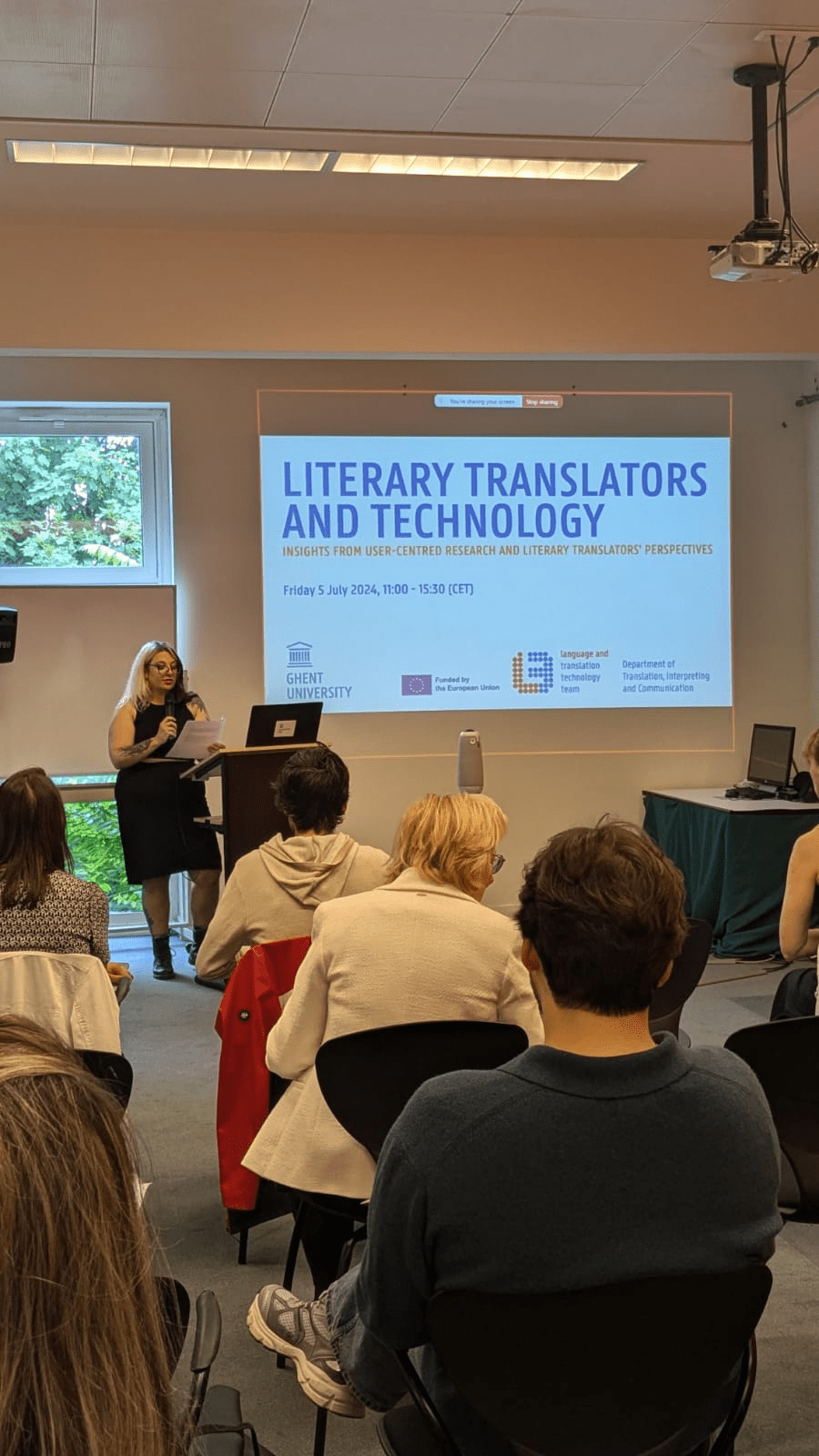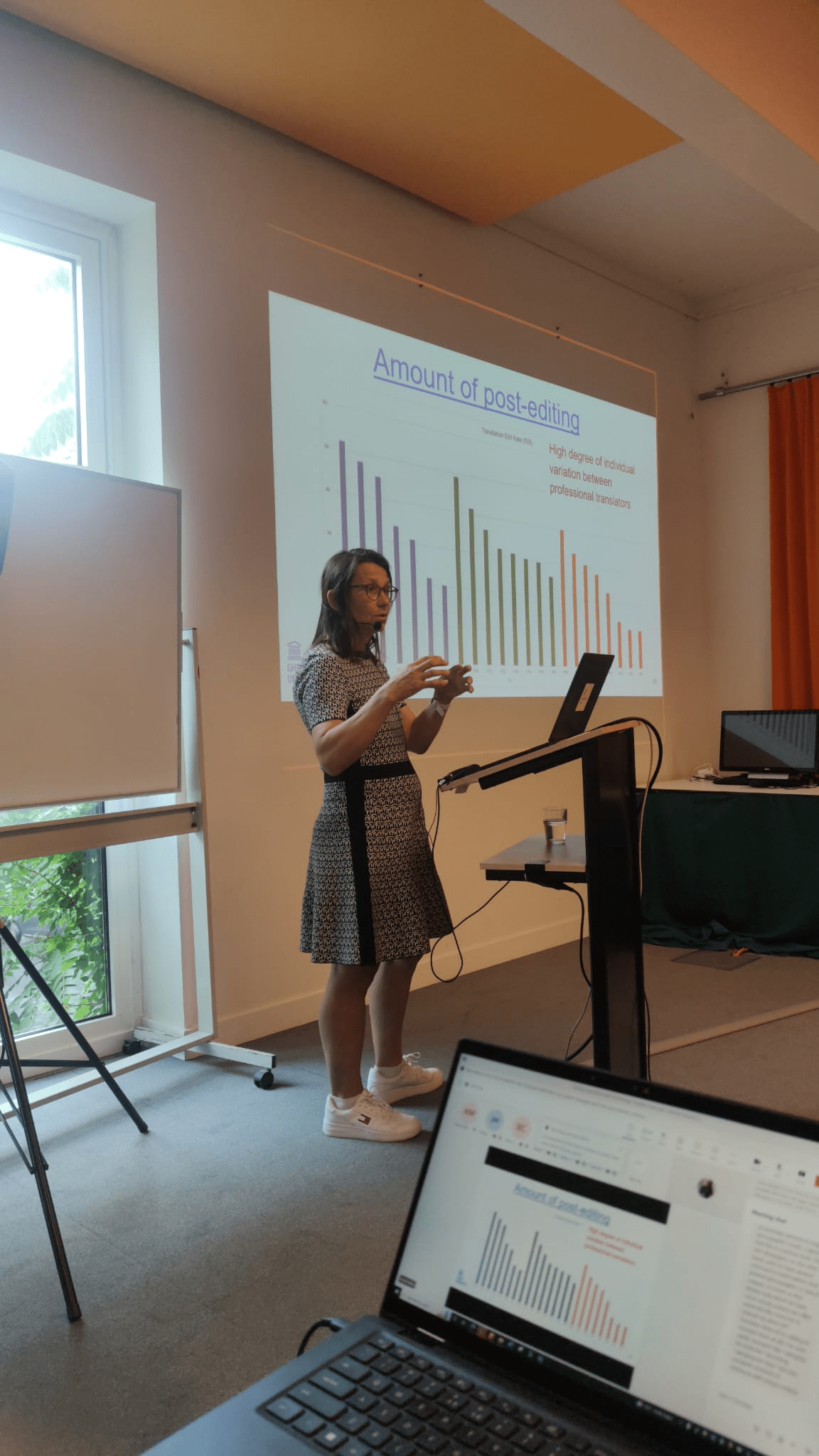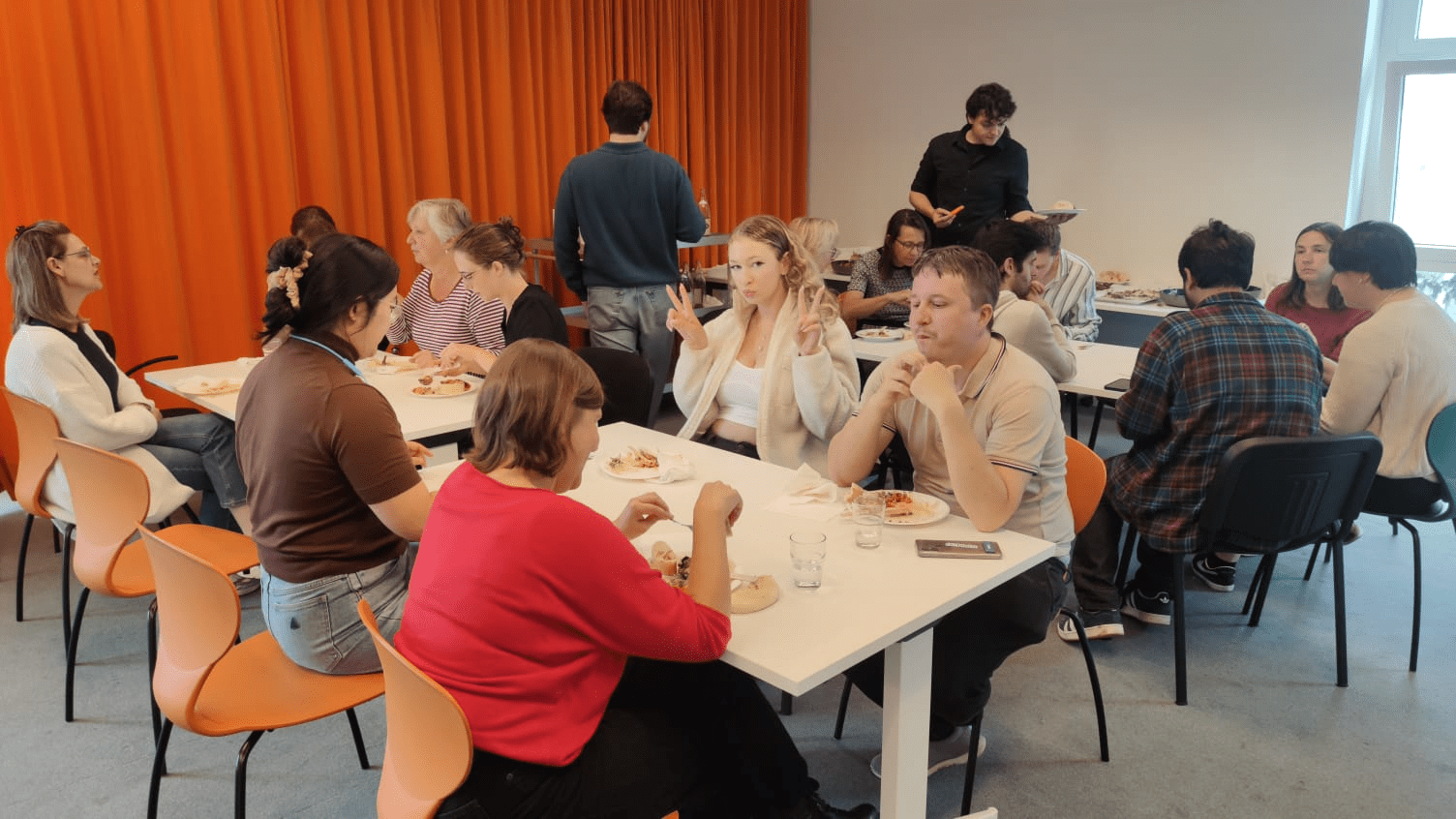Recap: “Literary Translators and Technology: insights from user-centred research and literary translators' perspectives”
For the past two years, I have been working on the EU-funded "Developing User-centred Approaches to Technological Innovation in Literary Translation” (DUAL-T) project. To celebrate the end of the project, I organised the event "Literary Translators and Technology: insights from user-centred research and literary translators' perspectives", which was held at at Ghent University and online on 5 July 2024. More than 200 people joined us for an afternoon of talks and discussions, and to hear the DUAL-T results.
The main reason why I started the DUAL-T project was to try and include literary translators' voices in research on translation technologies, as I felt they were rarely being heard. This being said, a lot has changed in the technological landscape in the past two years, and while a lot more can and should be done, academia is indeed moving towards more user-centred approaches in (literary) translation technology research.
This event was envisioned as a chance to engage in a discussion around user-centred research in literary translation and literary translators' perspectives on technology, involving academia, literary translators, and industry. Here’s a recap of the event:
Dorothy Kenny (Dublin City University) and Marion Winters (Heriot-Watt University) offered an overview of the nascent field of literary machine translation and talked about their experience and findings while researching translator style in the (postedited) work of German translator Hans-Christian Oeser.
Damien Hansen (University of Liége/Ghent University) talked about his work on statistically adapted literary machine translation and shared his experience working with translator Nathalie Serval to explore technical and ergonomic factors in literary machine translation.
I (Paola Ruffo, Ghent University) presented the results of the DUAL-T project, where I conducted user testing of three literary translation workflows. Twenty-four professional literary translators were asked to translate two short stories using, respectively, MS Word and SDL Trados Studio 2022, and postedit one short story using Nuanxed proprietary book translation platform. Results included data on temporal, cognitive, and technical effort, as well as participants’ perceptions of translation technology and postediting. You can download the slides and listen to the talk below.
Lieve Macken (Ghent University) reported on a work-in-progress follow-up study which uses the translations obtained from the DUAL-T project to compare style features and translation errors between two different conditions: translation “from scratch” and postediting.
The afternoon ended with a roundtable discussion involving the researchers Dorothy Kenny and Marion Winters, the literary translators Els Snick and Anne Oosthuizen, and Robert Casten Carlberg, CEO of Nuanxed. The panel participants shared their views on the effects of translation technology on the economic dimension of the profession, aspects of technology for literary translation that industry and academica should prioritise in the near future, and the best ways to include literary translators in research and have fruitful conversations with industry.
Overall, the impact of the event could be summarised by the words of Els Snick, who, at the beginning of the panel, highlighted how she thought she would have to defend herself and the profession, but ended up realising we were all working towards similar objectives instead. The feedback from the audience was overwhelmingly positive, with many highlighting the need for more of these conversations to happen, and engaging in constructive discussions both during the Q&A sessions and in the online chat, where hundreds of messages where exchanged.
I hope this event was a chance to promote dialogue between different stakeholders and get the conversation started around topics such as literary machine translation, postediting, creativity, literary translators’ perceptions and professional status. The wish is for this conversation to continue in the years to come.
If you would like to collaborate on a research project or would like me to present at your event/give a training session, please get in touch!
Thanks again to all those who participated, and see you soon at the next event!
Paola Ruffo: “Is there more to the story? Insights from the DUAL-T project











